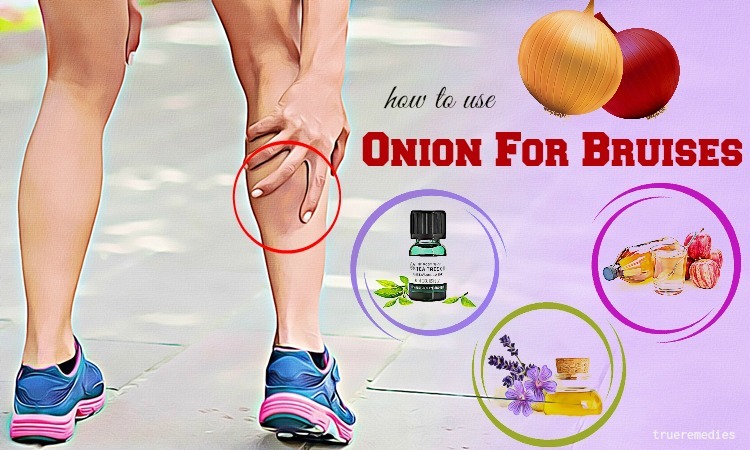Table Of Contents
More and more people have been following eating diets in the world in recent years. Because of being exposed to a polluted environment and a number of unhealthy foods, they want to find ways to detox their body and even lose their weight. Dieting is considered among the best methods to meet these above requirements. A ketogenic diet is one of the most healthful diets, which has attracted a lot of attention from the community lately. In this article, we, True Remedies, will help you know more about it. Let’s start!
- Top 6 Diet Do’s And Don’ts For Restless Leg Syndrome
- 15 Gout Diet Do’s And Don’ts
- Kidney Disease And Potassium: Diet Do’s And Don’ts
A Ketogenic Diet – Top 10 Do’s And Don’ts For Beginners
I. What Is A Ketogenic Diet?
The ketogenic diet, also called the keto diet, is a term for a low-carb, high-fat and adequate-protein diet. The diet cuts down on a large number of carbohydrates and displaces it with fat. The reduction in carbohydrates may help the liver break down fat to produce fatty acids and ketone bodies. Then the ketone bodies change glucose into energy in the brain.
II. Why Should You Try Ketogenic Diet?
The ketogenic diet has been famous for its numerous impressive health benefits.
Weight Loss
As converting fat into energy takes more calories than converting carbohydrates into energy, this diet may be more effective in losing weight than other ones[1].
Cancer
TrueRemedies Partner Solutions

Need a Help from the Leading Expert Online, Available 24/7?
They’re all here and ready to answer your questions online or by phone. Keep asking questions until you get the answer you need.
Insulin is a hormone that plays a crucial part in regulating blood sugar in your body. It allows the body to use or store glucose as energy. Keto diet may reduce the amount of insulin produced by the body because you do not need to store sugar. The lower the insulin levels are, the higher chance you can avoid getting some types of cancer.
Cardiovascular Disease
In a 2017 study[2], researchers found that ketogenic diets might have beneficial effects in reducing “bad” LDL cholesterol while increasing “good” HDL cholesterol. That may lead to a reduced risk of cardiovascular disease.
Diabetes
According to a study in 2019, keto diets can be good choices for patients suffering from type 2 diabetes[3]. Very low carbohydrate content in these diets may control your blood sugar at a normal level. Nevertheless, the effects of keto diets on type 1 diabetes are still controversial, so it is necessary for more study and research to be done.
Epilepsy
Epilepsy is a central nervous system disorder that may happen to any age, which may lead to unpredictable seizures. It is said that the number of seizures decreases at least by half in people who follow ketogenic diets[4].
Acne vulgaris
As mentioned above, keto diets are excellent in lowering the level of insulin. That may protect you against acne breakouts.
III. Do’s And Don’ts In A Ketogenic Diet
A. What-To-Do
1. Make A Ketogenic Diet Food List
It is quite difficult for you to adjust to the diet right away, so you need to make a food list from easy to hard levels. In the beginning, you can choose ingredients and recipes simple. If you do not know which food you can eat, you should search for food at reliable sources, such as Google. Besides, creating a ketogenic diet food list will save your time effectively. It depends on you when preparing a one-week or one-month list of food.
2. Consume Whole Foods
What are whole foods? Whole foods are plant foods which are nearly unprocessed and unrefined before being eaten. Whole foods include whole grain, dark green vegetables, fruits, legumes, and tubers. These foods are rich in essential vitamins and minerals that help to achieve good health.
3. Consume Good Fats
It is really important to ensure the quality of fat before you eat. Examples of healthful fats are monounsaturated and polyunsaturated fats. Monounsaturated fats can be found in olive oil, sesame oil, canola oil, safflower oil, avocados, peanut butter, and some nuts. Polyunsaturated fats, which include omega-3 and omega-6 fats, are present in walnuts, sunflower seeds, flax seeds, soybean oil, and some fish, such as salmon, mackerel, trout, tuna, albacore, and herring.
4. Check Your Blood Sugar Levels
Checking your blood sugar levels before and after applying the diet will let you know how effective the diet is. That may be a motivation for you to follow the keto diet for a long time. Your blood glucose should be regulated (less than 100 mg/dL).
5. Increase Water Intake
A rising level of ketone bodies in the blood, also called ketosis, may result in dehydration. You should drink more water. You can drink pure water, fruit juice and milk made from nuts. Remember to get away from soft drinks, including soda and coca-cola.
6. Prepare For The Keto Flu
Keto flu may happen to you after two to seven days of starting a ketogenic diet[5]. Some symptoms of this flu include headaches, foggy brain, nausea, constipation, fatigue, and trouble sleeping. Here are some tips for you: drink a lot of water, limit exhausting activities and eat plenty of colorful vegetables. If you feel very sick, get your doctor’s advice. Do not give up the diet. You just have to suffer exhaustion for a few days. Do not worry too much. Everything will be okay later.
B. What-To-Avoid
1. Eating High-Carb Vegetables
It is common knowledge that all types of vegetables bring us amazing health benefits for the human body. However, you are on a low-carb diet; it is essential to bear in mind that you should avoid vegetables that contain a high content of carbohydrates. These vegetables include sweet potatoes, beets, corn, green peas, pinto beans, carrots, and butternut squash.
2. Giving Up Easily
The ketogenic diet takes time to have good effects on your body and health. Do not rush. Be patient and follow the diet strictly. Many people feel discouraged in the beginning because of keto flu. Therefore, you need to have a decent understanding of this diet before deciding to apply it.
3. Cheating
Be strict with yourself. Only a small bar of chocolate may destroy the process you have done before. We know it is very hard, but one day you will own a beautiful body with good health, which everyone always admires.
4. Starting Keto Diet Without Doctor’s Advice
You need to talk with your doctor before applying any diets and remedies to the body. The doctor will show you whether this diet is safe to try or not. Especially if you are suffering from type 1 diabetes, you should consider more.
These above information will hopefully boost your approach to the ketogenic diet. In case you would like to learn more about interesting knowledge about health or beauty, please go to our page News & Facts. If you have any questions or know other do’s and don’ts in a ketogenic diet for beginners, leave them in the comment box below. Thank you for spending time with us!
Read more: Top 5 Foods That Cause Anxiety, Depression And Panic Attacks. This article was medically reviewed/fact checked by Dr. Annie Markowitz.









